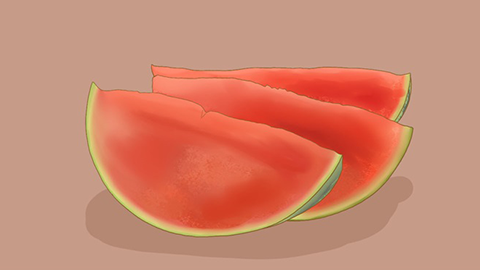Can I eat watermelon after having my appendix removed?
Generally speaking, whether one can eat watermelon after appendectomy depends on the postoperative recovery and gastrointestinal condition. When bowel function has recovered and there are no discomfort symptoms, a moderate amount of watermelon may be consumed. However, during the early postoperative period or if diarrhea or other issues exist, eating watermelon is not recommended. Detailed analysis is as follows:

If more than 24 hours have passed since the appendectomy and the patient has resumed normal bowel movements and gas passage, with gradually recovering gastrointestinal motility and no symptoms such as nausea or abdominal distension, a moderate amount of watermelon can be consumed. Watermelon contains abundant water, vitamin C, and glucose, which can replenish fluids and energy needed after surgery, promote metabolism, and aid in physical recovery. Each serving should be limited to approximately 100 grams, and room-temperature watermelon should be chosen to avoid cold stimulation.
Within the first 24 hours after appendectomy, intestinal function has not yet recovered, and consuming watermelon at this stage may increase the gastrointestinal burden, leading to symptoms such as abdominal distension and diarrhea. If the patient has inherently weak gastrointestinal function or experiences indigestion or worsening abdominal pain after surgery, the high water content and dietary fiber in watermelon could further irritate the intestines and hinder recovery. Additionally, due to its high sugar content, patients with diabetes should consume watermelon cautiously after surgery to avoid affecting blood sugar control.
Consumption of watermelon must strictly follow the postoperative dietary recovery progression, starting with small amounts and monitoring for gastrointestinal discomfort. If symptoms such as abdominal pain or diarrhea occur, consumption should be stopped immediately. The daily diet should primarily consist of bland, easily digestible foods, gradually transitioning to a normal diet to meet nutritional needs during the recovery phase.







